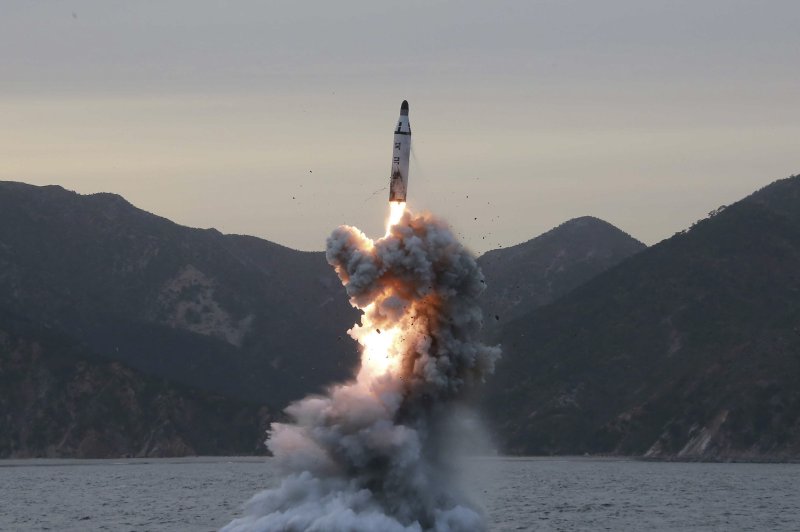 South Korea considers its nuclear options
South Korea considers its nuclear options
July 20 (UPI) — South Korea has started thinking about its own nuclear options in response to the growing nuclear and missile threat from North Korea.
National Assembly member Lee Jong-kul, who is close to President Moon Jae-in, said “the most effective deterrent to nuclear weapons is a nuclear weapon itself.”
“I believe we need a phased strategy for nuclear armament,” he told an audience in Washington, D.C., this week.
One phase would be the relocation of U.S. tactical nuclear weapons in South Korea.
“[I]n the final phase, we should develop our own nuclear weapons,” Rep. Lee concluded.
His remarks about the return of U.S. tactical nukes was echoed by Dr. Hyun-ik Hong, a senior research fellow at the Sejong Institute, a leading South Korean think tank. Both speakers made clear that the Moon administration’s first step will be to propose renewed inter-Korean dialogue on peace and security on the peninsula, ultimately leading to denuclearization.
President Donald Trump signed off on Moon taking the lead on a dialogue initiative during their recent meeting.
Lee said that the nuclear armament proposals would be pursued if North Korea would enter meaningful talks and continued its missile and nuclear testing. The return of U.S tactical nukes to South Korea was one of several options offered to Trump by his National Security Council in April.
Tactical nukes were removed by the United States from Korea in 1991 as a trust-building measure prior to the signing of a Joint Declaration between the two Koreas in 1992. In it, both parties agreed not to possess, produce, or use nuclear weapons, and prohibited uranium enrichment and plutonium reprocessing.
The agreement has been extensively breached by North Korea. China is likely to react strongly to renuclearization in South Korea. However, some observers believe the prospect may lead China to take the North Korean nuclear threat more seriously. China undertook to prevent nuclear development in North Korea at the time of the 1992 Declaration yet has failed to deliver.
Lee was speaking at the International Forum on Building an Alliance for One Korea, organized by Action for Korea United, One Korea Foundation, and the Global Peace Foundation.
“I believe we need a phased strategy for nuclear armament,” he told an audience in Washington, D.C., this week.
One phase would be the relocation of U.S. tactical nuclear weapons in South Korea.
“[I]n the final phase, we should develop our own nuclear weapons,” Rep. Lee concluded.
His remarks about the return of U.S. tactical nukes was echoed by Dr. Hyun-ik Hong, a senior research fellow at the Sejong Institute, a leading South Korean think tank. Both speakers made clear that the Moon administration’s first step will be to propose renewed inter-Korean dialogue on peace and security on the peninsula, ultimately leading to denuclearization.
President Donald Trump signed off on Moon taking the lead on a dialogue initiative during their recent meeting.
Lee said that the nuclear armament proposals would be pursued if North Korea would enter meaningful talks and continued its missile and nuclear testing. The return of U.S tactical nukes to South Korea was one of several options offered to Trump by his National Security Council in April.
Tactical nukes were removed by the United States from Korea in 1991 as a trust-building measure prior to the signing of a Joint Declaration between the two Koreas in 1992. In it, both parties agreed not to possess, produce, or use nuclear weapons, and prohibited uranium enrichment and plutonium reprocessing.
The agreement has been extensively breached by North Korea. China is likely to react strongly to renuclearization in South Korea. However, some observers believe the prospect may lead China to take the North Korean nuclear threat more seriously. China undertook to prevent nuclear development in North Korea at the time of the 1992 Declaration yet has failed to deliver.
Lee was speaking at the International Forum on Building an Alliance for One Korea, organized by Action for Korea United, One Korea Foundation, and the Global Peace Foundation.